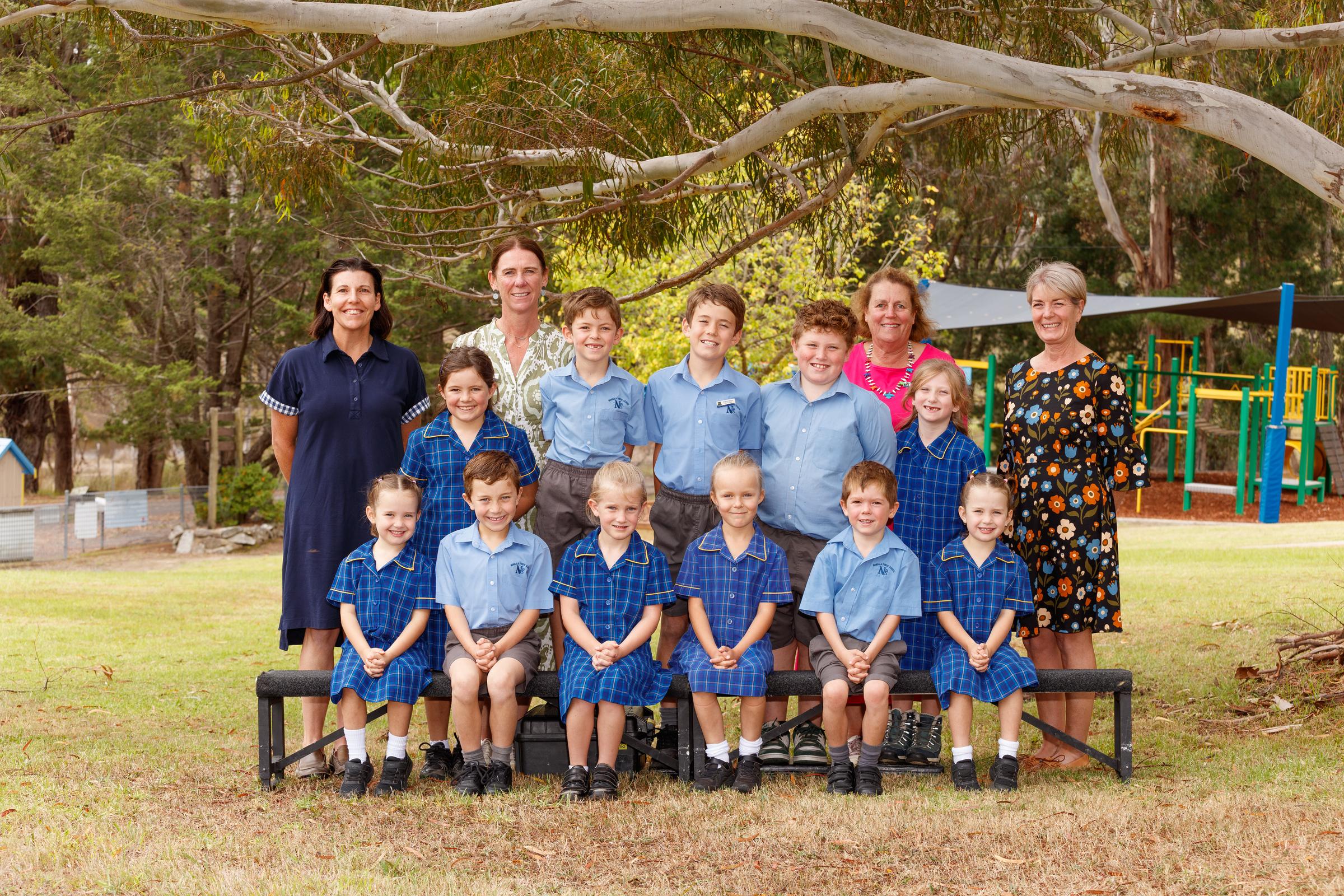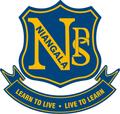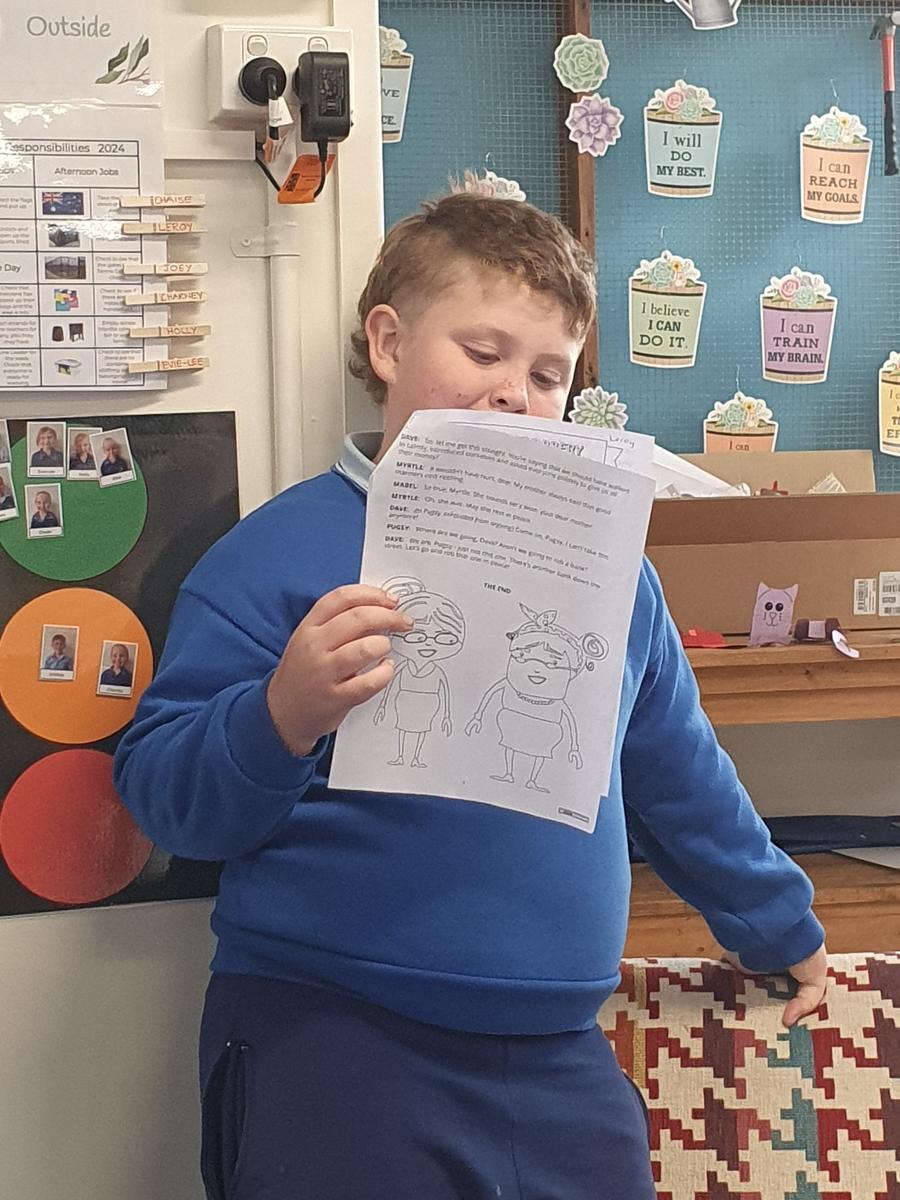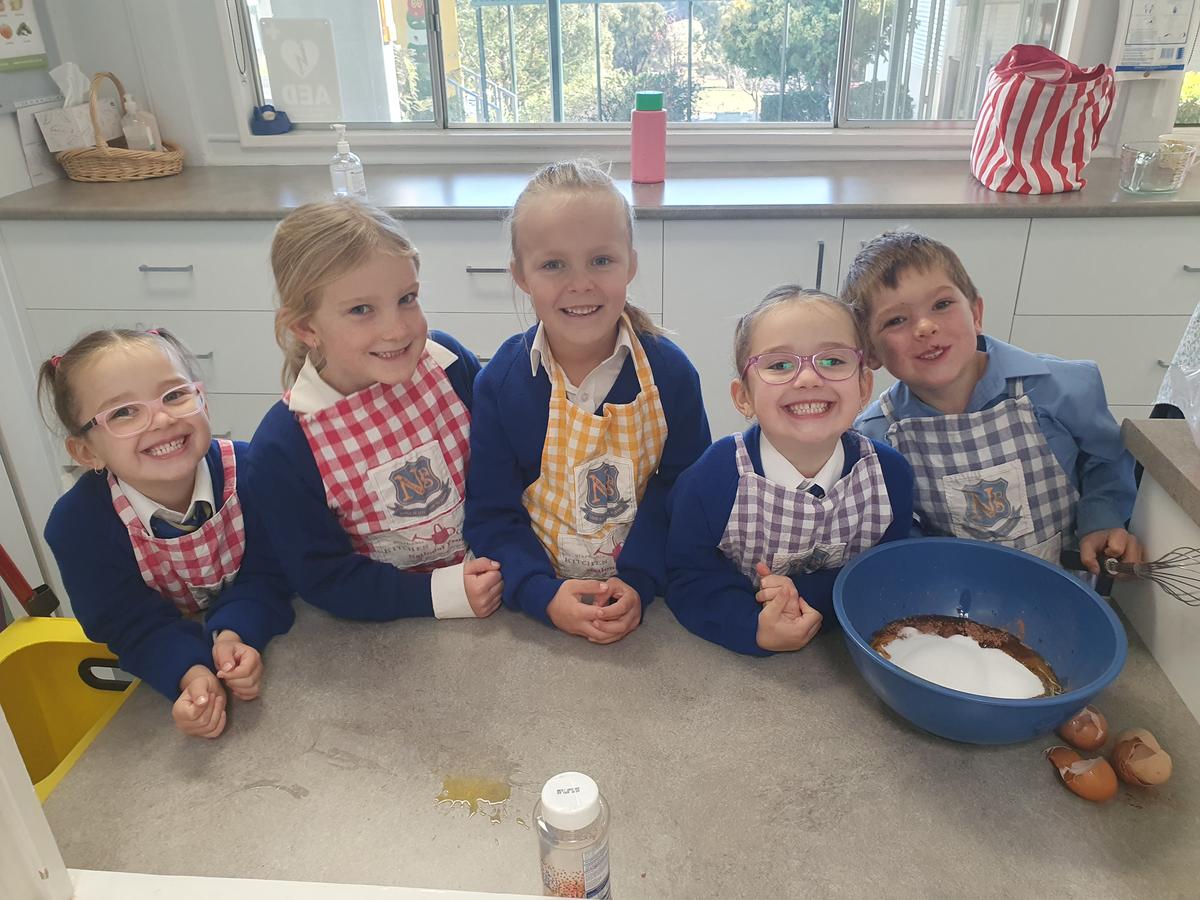In the Classroom

Developing Reading Fluency through Reader's Theatre
Chaise, Valerie, Chanse, Leroy, Lindsay and Evie-Lee have been having some fun whilst improving their fluency skills. The students were given a Reader's Theatre where they had to take on a character from the Reader's Theatre and read their lines concentrating on expression, phrasing and reading to the punctuation.
Fluency is reading expressively with accuracy and at a good pace. It is one of the key components of learning to read. It is the progression from developing automatic word recognition skills to comprehension.
Fluency is made up of three core components:
- Accuracy is the reading of words correctly.
- Rate is the speed of word identification. It is usually recorded as words read per minute.
- Prosody is the sound of the reading. This can be explained as the expression used when reading.
Leroy, Evie-Lee and Lindsay presented their Reader's Theatre at assembly recently and they are to be congratulated on their improvement in their fluency and ability to entertain their audience. We look forward to Valerie, Chaise and Chanse to perform theirs when we manage to have all three of the 'actors' in the room together for an assembly!
Informative Texts Unit of Work
Students, old and young have been working lately on a unit about Informative Texts. The students have researched the language and features of informative texts and the purpose of an informative text. The students also looked at the differences between informative and imaginative texts.
Some of the favourite learning activities in this unit were learning about the differences between facts and opinions and the scavenger hunt for different features found in informative texts like a glossary, headings, captions and facts.
Cooking in Library?
Mrs Hunt brought books to life in the kitchen last week with Kindergarten when they cooked up a storm! The aroma of chocolate cake coming from the kitchen was sensational. I am informed that there was definitely no licking the spoon but that is not what the faces of the students said happened!!
Groups in Maths
Kindergarten have been learning about equal groups. We have been looking at how we can share collections equally into groups. The students also discovered that sometimes we have some left over. Through exploration the students then discovered that sometimes if you change the number of groups and the number in each group it can mean that there are no remainders. The problem of having some 'M&M's remaining was solved in a completely different way - yes the solution definitely required 'removing' the remainder from the scenario.
District PSSA Cross Country
A huge well done to Chanse who represented Niangala School at this year's District Cross Country held in Armidale on Friday 24 May. Chanse competed in the 8/9 year boys division and finished 35th. This is an amazing effort for the first time that he has been eligible to be compete at the representative level.
Colour the Earth - Visual Arts Camp
Chaise attended a 2 day Visual Arts Camp for selected Stage 3 students at Thalgarrah Environmental Education Centre from Thursday May 23 to Friday May 24, 2024. He joined a group of 40 students for workshops from the Artists in Residence, Danielle Waterford, CRISP, Lucy Wall from NERAM and Pat Cavanaugh. The activities included painting, drawing and digital art. All of the Artworks were inspired by the natural environment around Thalgarrah EEC.
Crazy Hair Day - Supporting Cystic Fibrosis
Niangala students and staff supported Crazy Hair Day for Cysytic Fibrosis on Friday 31 May. A gold coin donation from each person went towards this cause with $29.00 being donated.
What is CF? - Cystic fibrosis (CF) primarily affects the lungs and digestive system because of a malfunction in the exocrine system that’s responsible for producing saliva, sweat, tears and mucus. Babies born today with CF can expect to live well into adulthood. There is currently no cure, but advances in treatment and care are helping people better manage their CF.
CF is the most common, life-limiting genetic condition affecting Australians. There is currently more than 3,600 people living with CF in Australia, and on average, a baby is born with CF every four days. That is one in every 2,500 births.
It is also estimated that over a million Australians are unaware they carry the CF gene.
People with CF develop an abnormal amount of excessively thick and sticky mucus within the lungs, airways and the digestive system. This causes impairment of the digestive functions of the pancreas and traps bacteria in the lungs resulting in recurrent infections, leading to irreversible damage.
Getting Nosey About CF
A short film made for the Cystic Fibrosis Trust to help children with Cystic Fibrosis understand their condition and to explain to other children what Cystic Fibrosis is.












